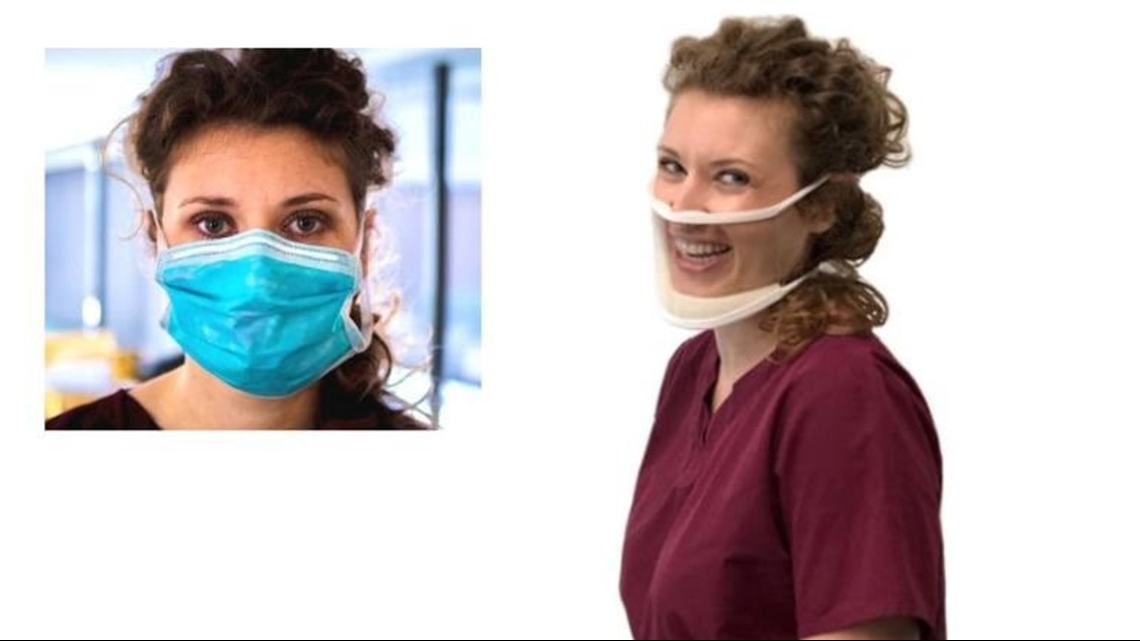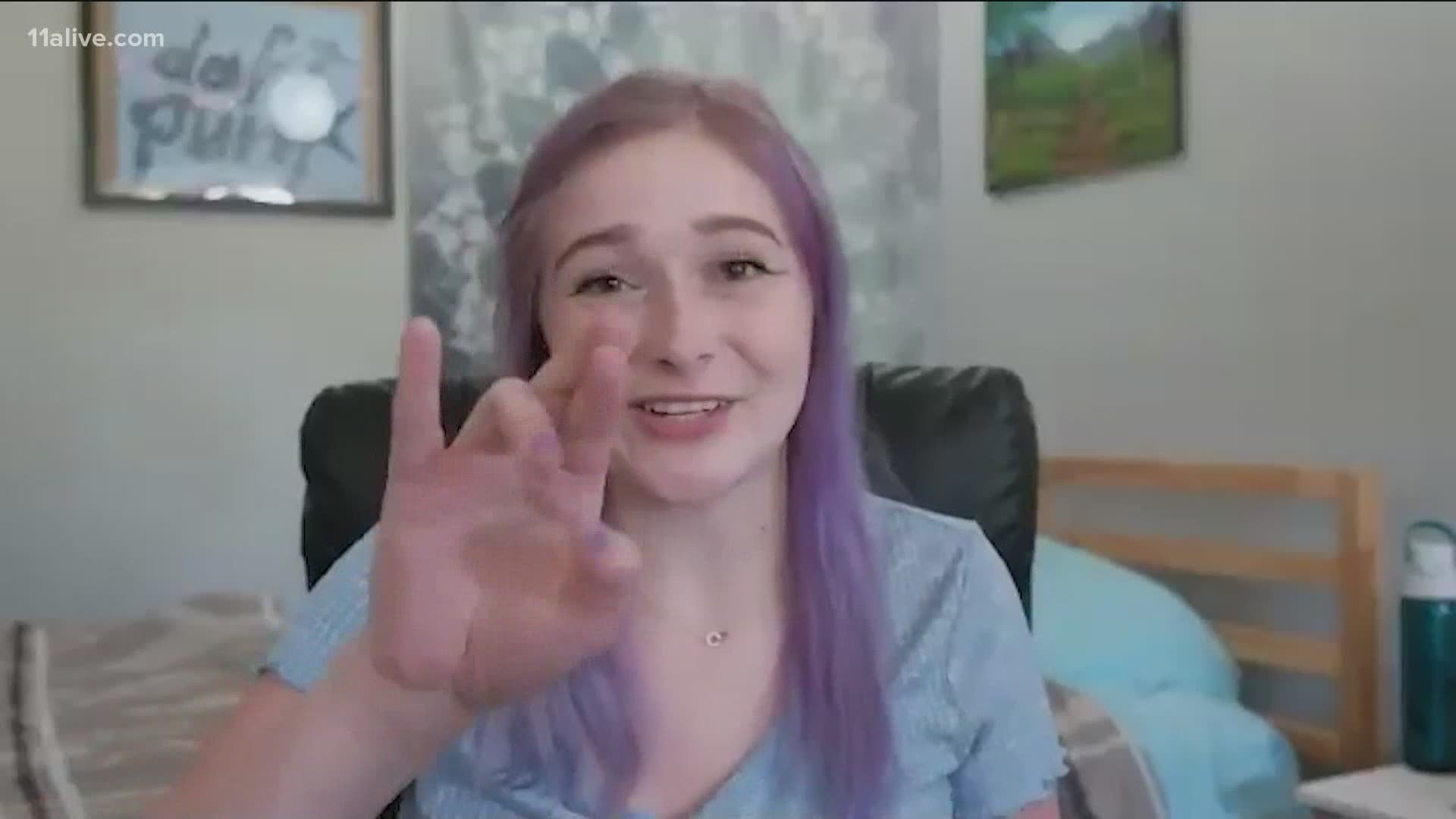ATLANTA — The U.S. Census estimates 40 million Americans are disabled, including 3 million children. They’re all facing new challenges in the world of COVID-19.
Chrissy Marshall is studying film production at the University of Southern California. She says she was born hard of hearing and is now profoundly deaf.
Marshall tells us mask requirements have made it difficult to effectively communicate.
“Deaf and hard-of-hearing people will rely on lip-reading. Obviously with the masks, that’s a huge challenge,” Marshall said.
RELATED: Masks, lack of information create serious challenges for those who are deaf, have hard time hearing
Companies like the Clear Mask have developed a see-through alternative; however, they are not FDA approved.


“We value seeing people’s expressions. That’s so much of how we communicate, and I miss it,” Marshall said.
Marshall created a video to share some basic signs for essential workers. She teaches how to sign phrases such as “Can I help you?” and “What do you need?”
“Universally around the world, people could understand a lot of gestures, like drink, like money,” Marshall explained. “There’s a lot of gestures people could use that are very beneficial, and a lot of basic signs use the same gestures.”
Her video has already racked up tens of thousands of views on Facebook and TikTok. She hopes to encourage people to keep an open mind.
“It’s so important for people to take a new perspective and not look at deaf and hard of hearing people as a burden. Look at it more as, ‘How can I provide access so that we’re all at an equal playing field?’ And I think people just received that message so well, and I was happy to see it,” Marshall said.
In the time of COVID-19 many are struggling to adapt, especially those with disabilities.
Jacob is 5 years old. His mother, Janeth McClure, told us he was diagnosed with autism last year. With schools closed, she has faced challenges keeping up with Jacob, helping him with his online classes, while still being able to do her work.
“For a child with autism, having a set schedule, knowing what to do - that is very vital, and that is something that he missed for a month-and-a-half,” McClure said.
Jacob now receives remote learning help from a nonprofit called Jacob’s Ladder. They are using virtual and home sessions to teach students with autism. McClure said Jacob has been able to focus while e-learning, and it’s allowed her to continue working.
“I think people with special needs always have to adapt, because think about it: their world is so unique,” McClure said.
Jacob's Ladder has begun posting video lessons online that anyone can use at www.jacobsladderresources.com.
11Alive is focusing our news coverage on the facts and not the fear around the virus. We want to keep you informed about the latest developments while ensuring that we deliver confirmed, factual information.
We will track the most important coronavirus elements relating to Georgia on this page. Refresh often for new information.

